FMIPA UNUD Receives Visit from Prof. Mitsunori Kirihata: Collaboration Opportunities in BNCT Research and Cancer Treatment
Bukit Jimbaran, Monday, December 2, 2024 - The Faculty of Mathematics and Natural Sciences (FMIPA) of Udayana University (UNUD) received a short visit from Prof. Mitsunori Kirihata, Head of BNCT Center, Osaka Metropolitan University (OMU), Osaka, Japan. Prof. Mitsunori Kirahata is an inseparable figure from the development of Boron Neutron Capture Therapy (BNCT) at Osaka Metropolitan University. As the director of the Research Center for BNCT, he has made a very significant contribution to the research and development of innovative cancer therapies. Prof. Kirahata has a deep interest in the field of boron chemistry and its application in cancer treatment. He has conducted extensive research on the synthesis of new boron compounds that are more effective in targeting cancer cells. In addition, Prof. Kirahata is also active in the development of more precise and efficient neutron irradiation methods. This short visit is expected to establish cooperation or collaboration, academic development, and improve the quality of education between the two institutions in the future.
Prof. Mitsunori Kirihata visited FMIPA on December 2, 2024 together with students of the 2023 UGM DIF Study Program who had conducted an Internship program at his place (BNCT, OMU, Osaka-Japan) for 2 months, and is also one of the teaching staff at the FMIPA Udayana Undergraduate Study Program, apt. Prof. Mitsunori Kirihata was warmly welcomed by the Head of FMIPA UNUD, namely the Dean of FMIPA UNUD, Prof. Dra. Ni Luh Watiniasih, M.Sc., PhD., Vice Dean Dr. Ngurah Agus Sanjaya ER, S.Kom., M.Kom, and Head of the FMIPA UNUD Pharmacy Study Program, Dr. apt. Eka Indra Setyawan, S.Farm., M.Sc. In this short meeting, Prof. Kirihata introduced BNCT and the focus of activities carried out by the BNCT Research Center, Osaka Metropolitan University, Osaka-Japan. It is hoped that with this meeting, various opportunities for research collaboration can be carried out in the fields of chemistry, physics and pharmacy as well as science, especially related to the use of boron as a BNCT development, diagnostic development, and targeted chemotherapy agent development.
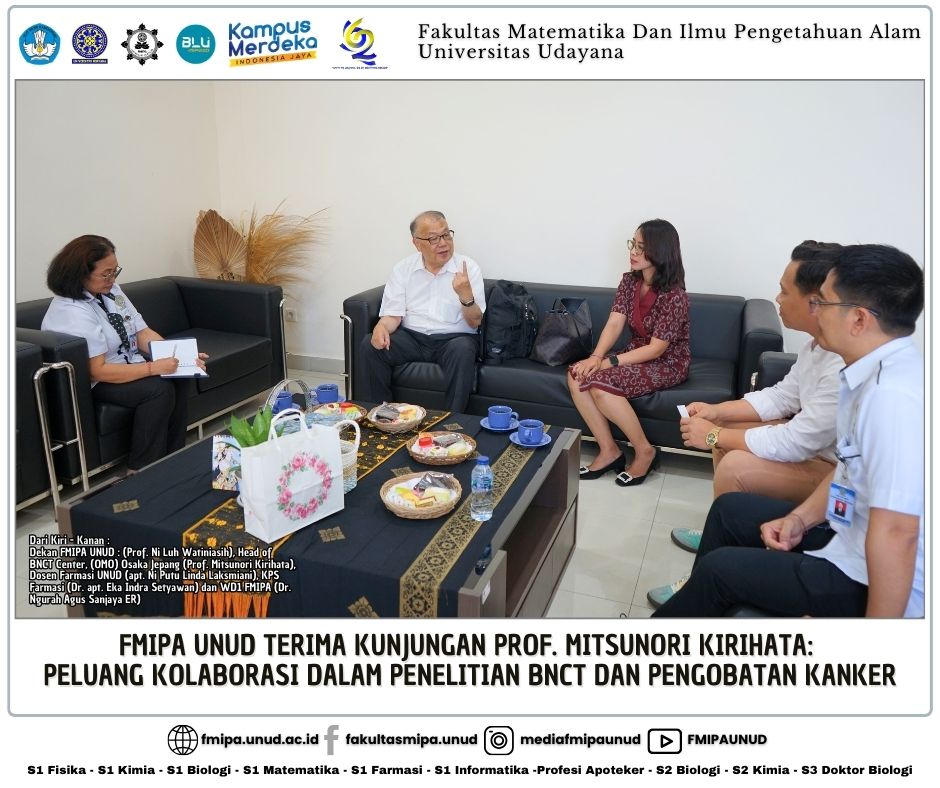
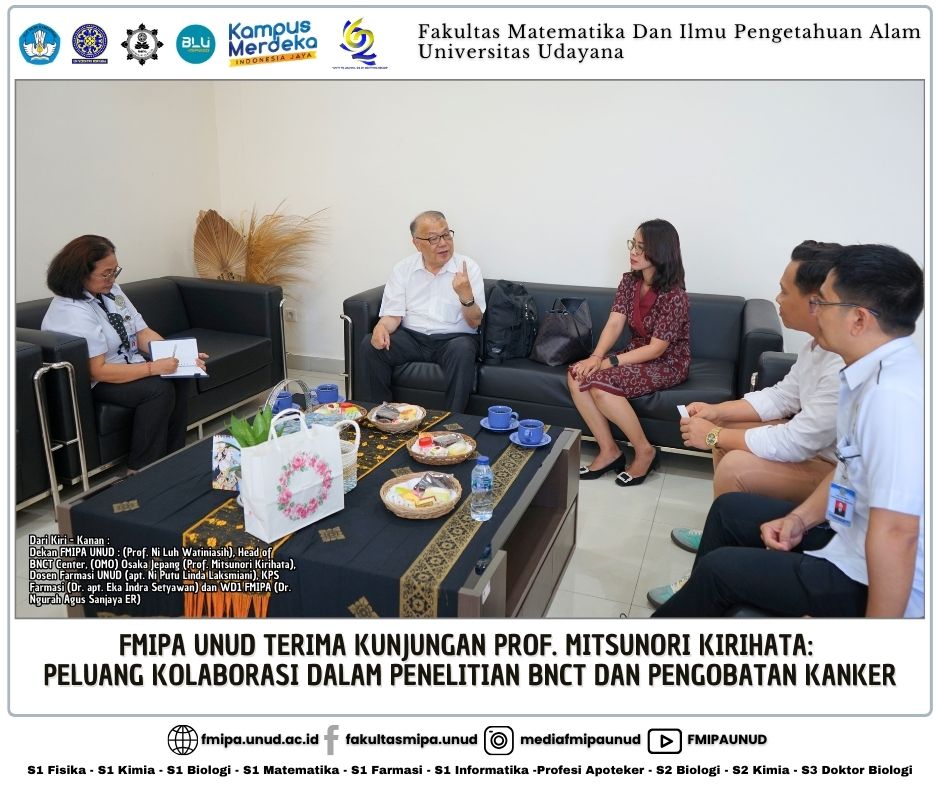
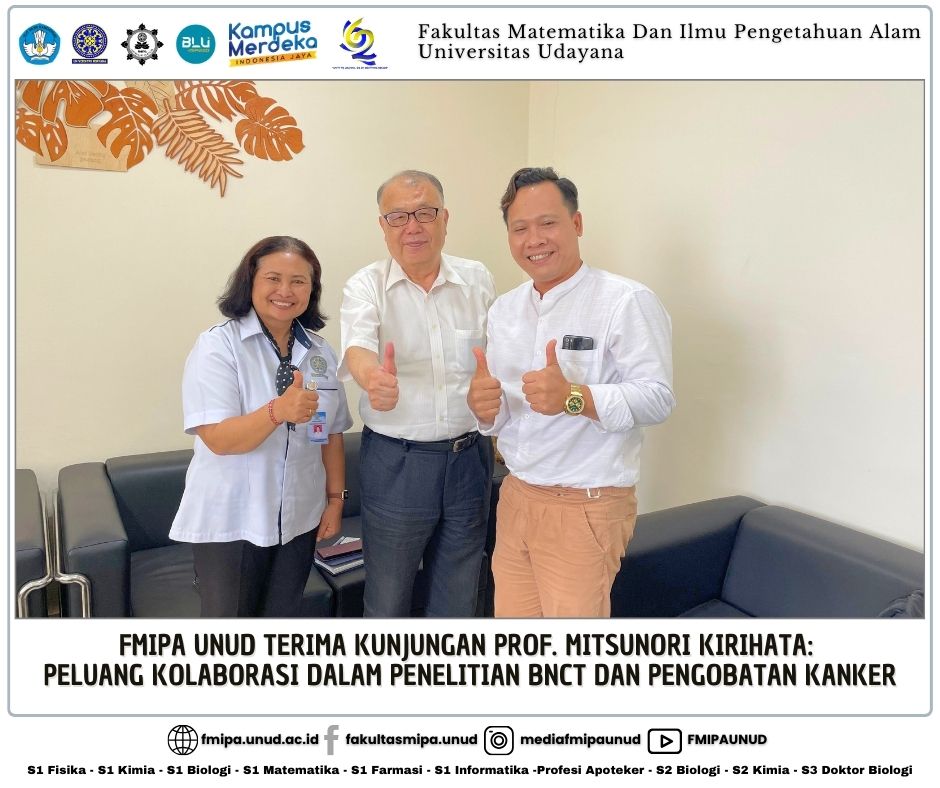
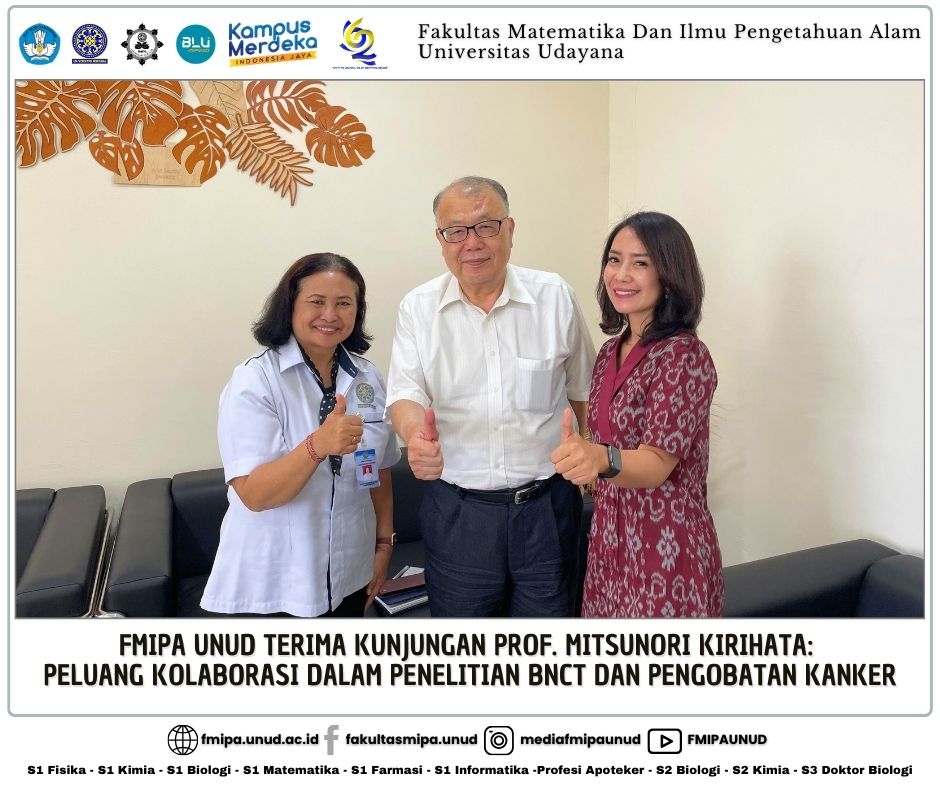
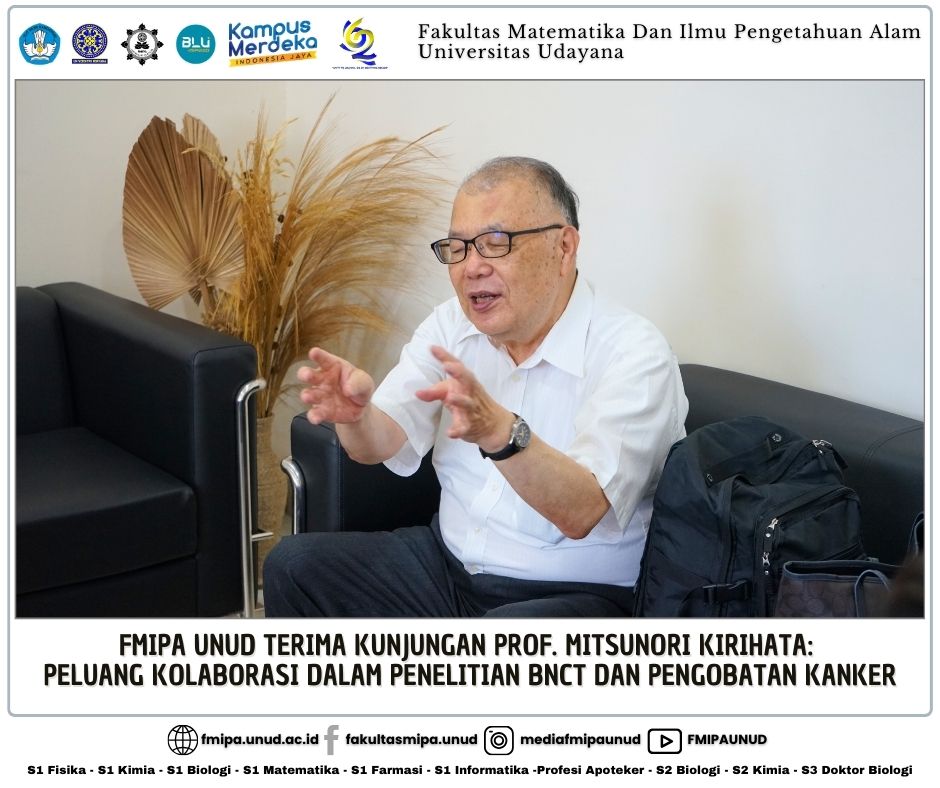
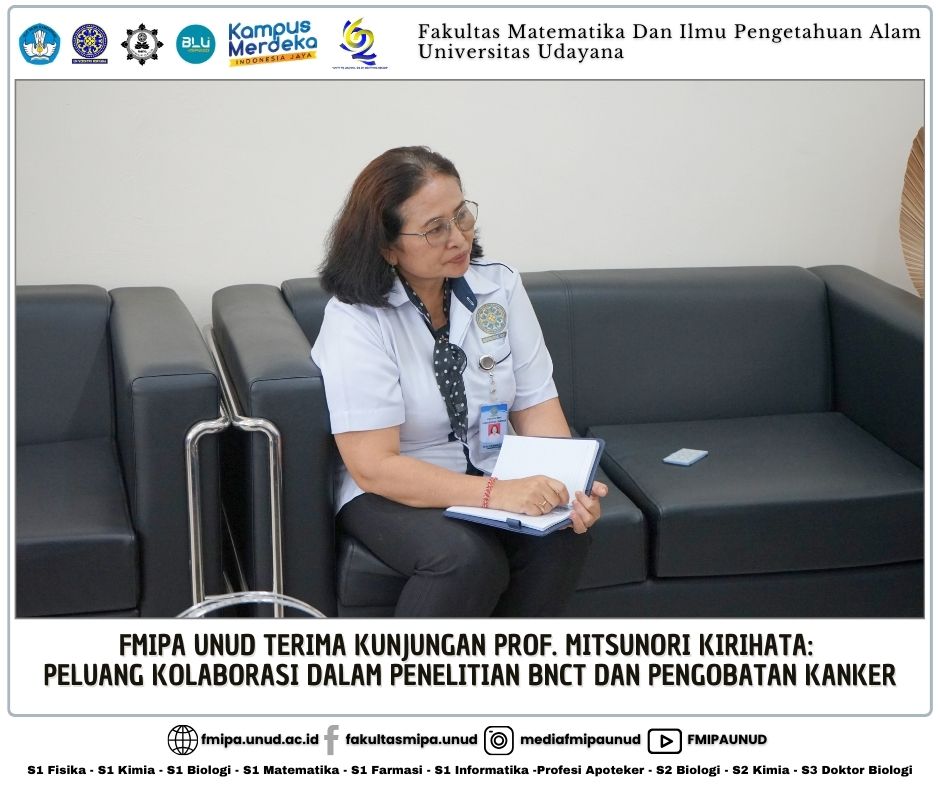
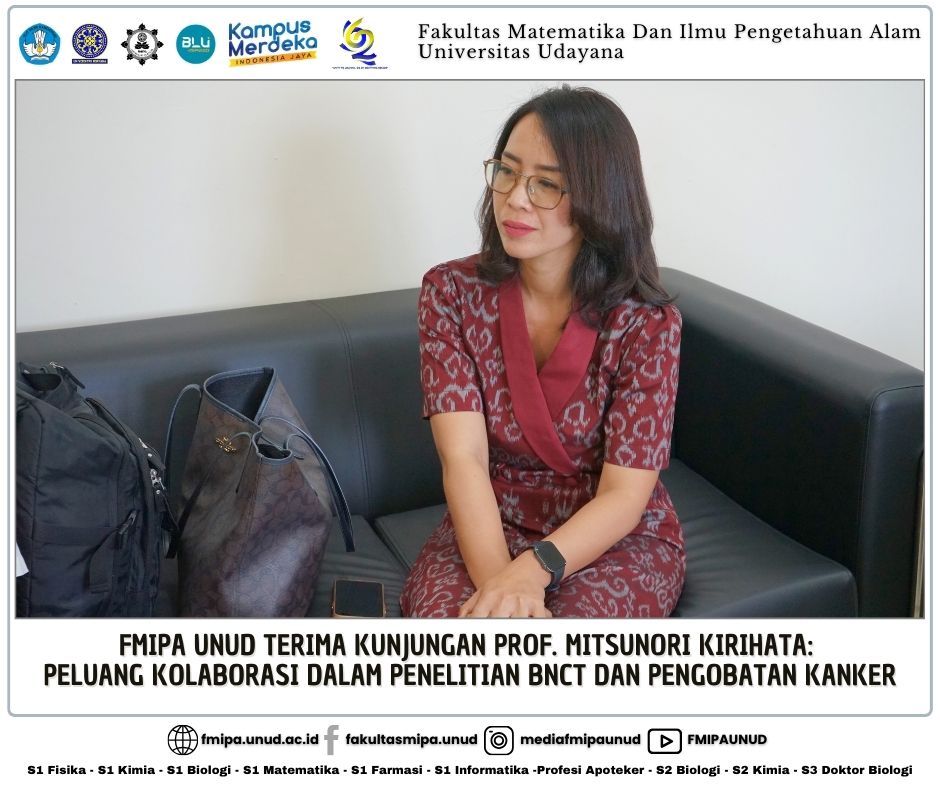
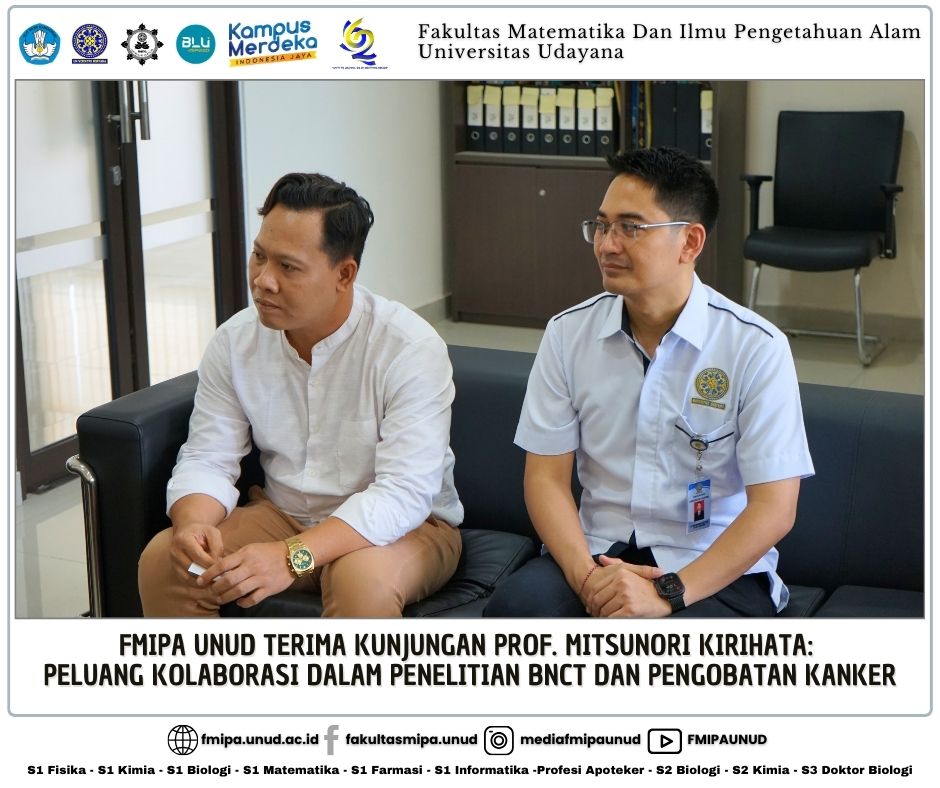
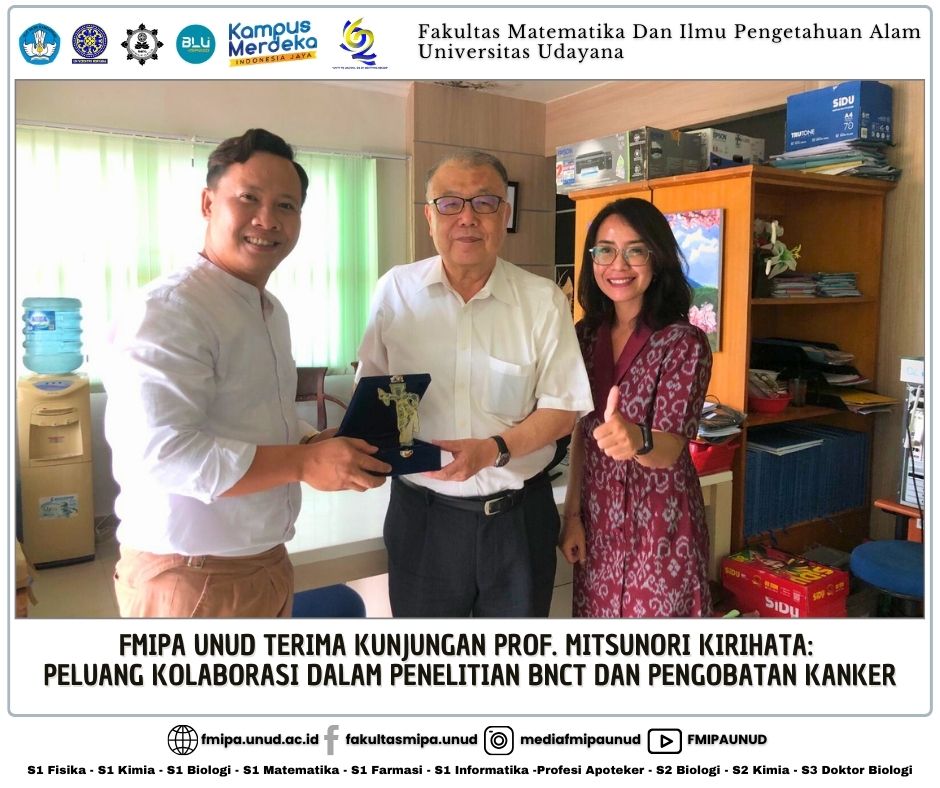
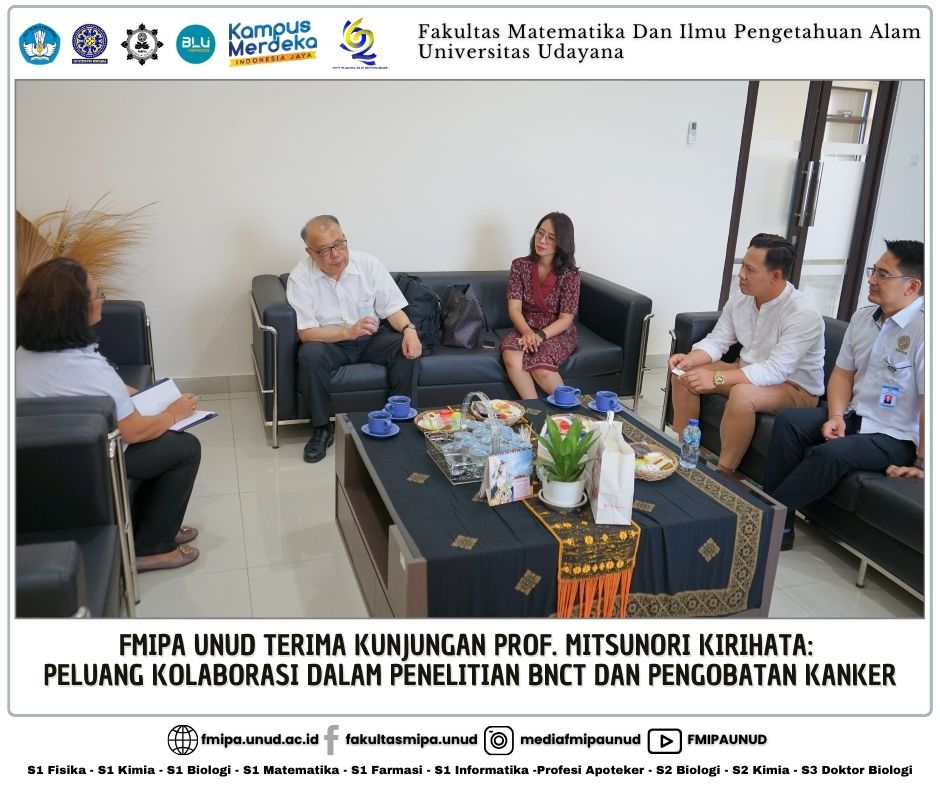

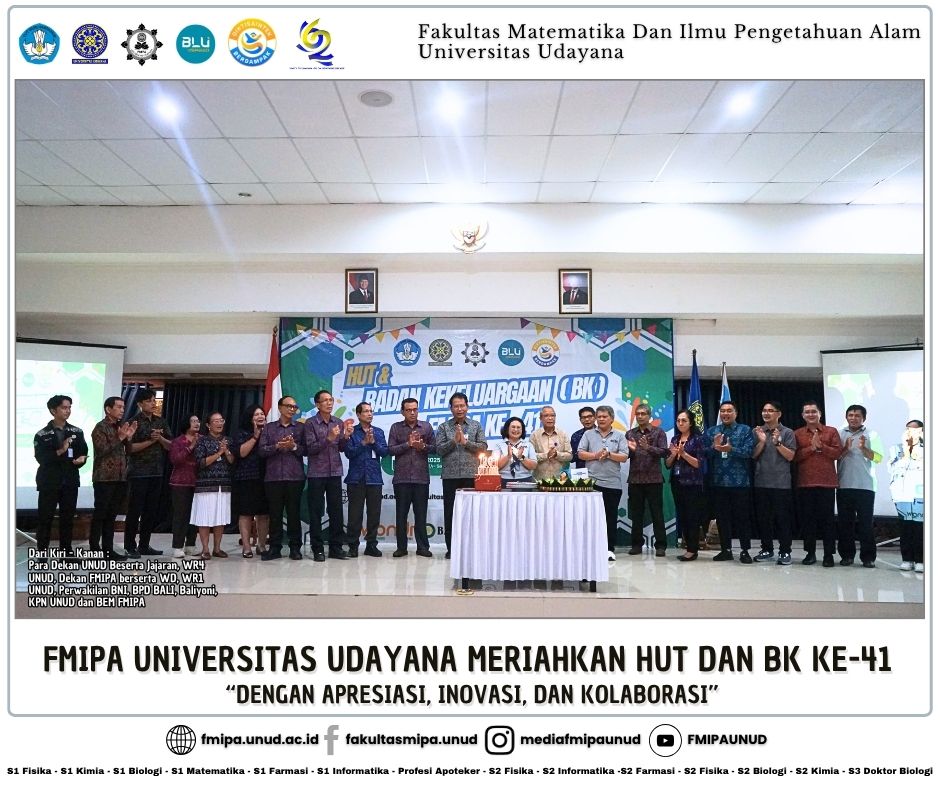
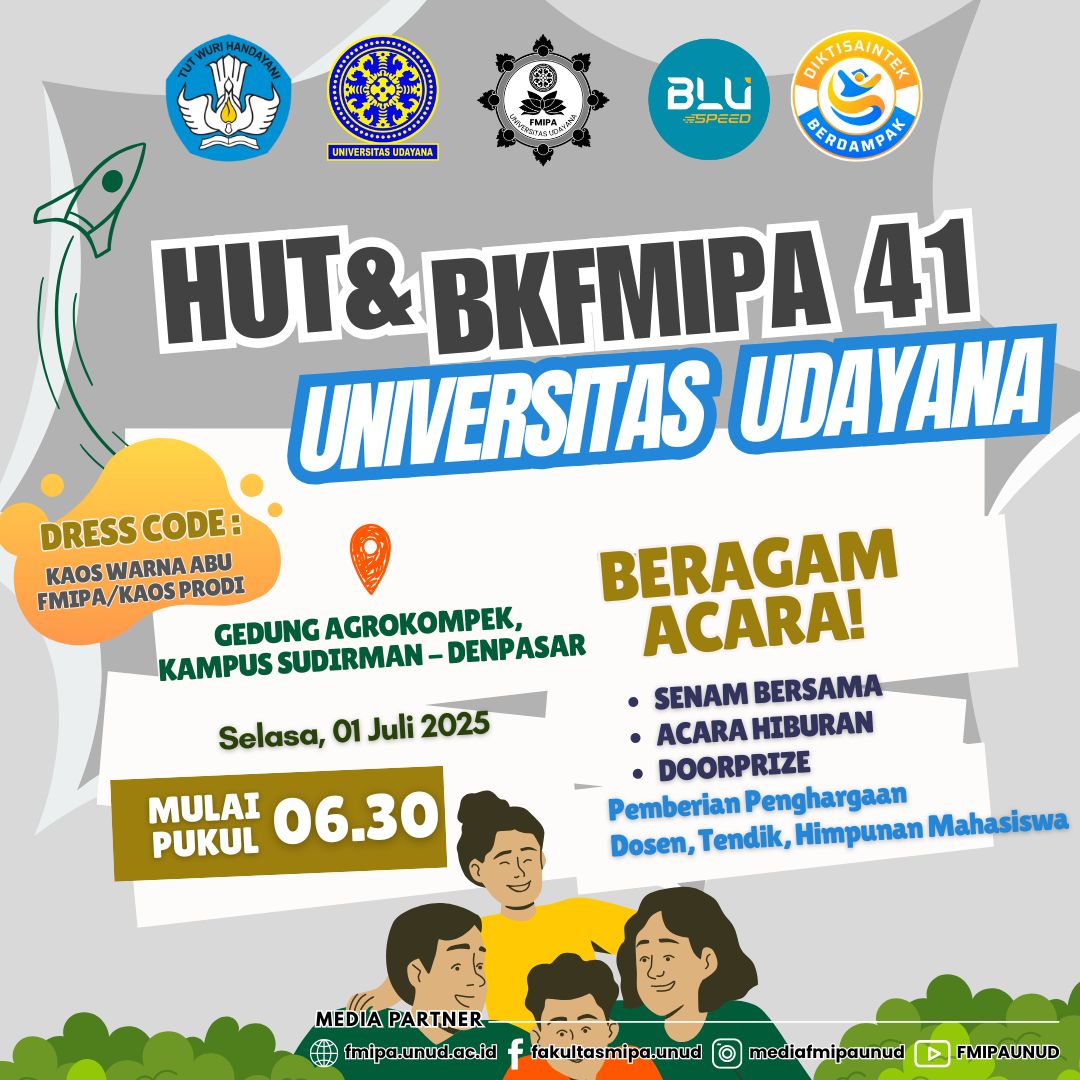
UDAYANA UNIVERSITY